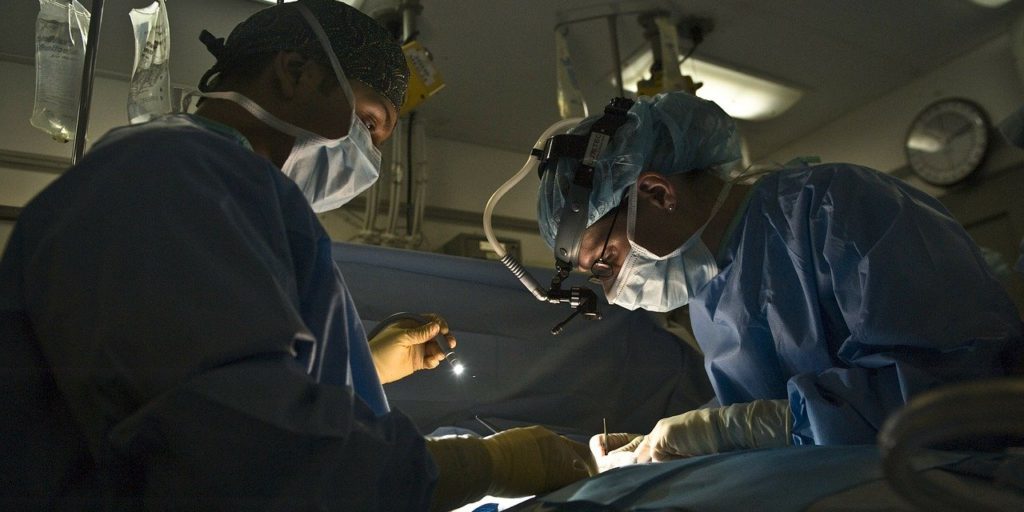- Medical malpractice lawsuits difficult to win for many reasons - April 27, 2021
- Supreme Court win is significant for medical malpractice plaintiffs - January 26, 2021
By Tony Poland, LegalMatters Staff • Gluckstein Lawyers’ recent Supreme Court of Canada (SCC) victory not only benefits their client but will have a resounding impact on the medical malpractice profession, says Jan Marin, one of the two lawyers who took up the case.
On Jan. 18, the SCC overturned the Ontario Court of Appeal (OCA) decision in Armstrong v. Royal Victoria Hospitalwithout reserve, reinstating a Superior Court decision awarding $1.3 million to Karen Armstrong, a Barrie woman who had a kidney removed as a result of injuries suffered during a 2010 surgical procedure.
“This is an important victory because, without it, anyone with a meritorious medical malpractice case would have faced an insurmountable obstacle in proving liability,” says Marin, who worked with co-counsel Ryan Breedon on the case. “Plaintiffs may have well failed because it would have been virtually impossible to meet the requirements that were set by the Court of Appeal decision.
‘Extremely satisfying’
“This victory is, of course, tremendous and it is easy to get caught up in what this means for the law and ourselves professionally. But at the end of the day, there’s a person behind this claim, so being able to call Karen and tell her this news was extremely satisfying. It doesn’t get any better than that.”
Breedon viewed the victory as a “reaffirmation of the law.”
“The Supreme Court really re-established the law as we thought it was,” he says. “It is also a push back against what would have been a very difficult development for the plaintiffs’ bar.”
In her original trial, court was told Armstrong had her colon surgically removed because of health concerns. Following the surgery, she experienced abdominal pain. Court was told her ureter was blocked with scar tissue, which severely damaged her left kidney. The kidney was later removed.
At trial the judge found Dr. Colin Ward improperly used a cauterizing device causing Armstrong’s injuries and was liable for damages.
Majority ruling
The case was appealed in June 2019, with the majority ruling that the trial judge incorrectly defined the standard of care that Dr. Ward had to meet.
“I agree with Dr. Ward that the trial judge erred in defining the standard of care that Dr. Ward had to meet, improperly establishing a standard of perfection,” Justice David M. Paciocco writes in the majority. “In simple terms, the trial judge effectively concluded that if Dr. Ward injured Ms. Armstrong’s ureter with the cauterization tool he was employing, he would be liable. Instead, the trial judge should have determined whether Dr. Ward performed the operation in the manner that a reasonably prudent surgeon would have.”
Breedon says the decision was “very surprising to us.”
“Obviously it was not what we were expecting,” he says. “I thought we had a very compelling case on the facts and on the findings of the trial judge. I really did think that the majority opinion from the Court of Appeal was wrong but because we had a very strong dissenting opinion that increased the likelihood that we would get leave at the Supreme Court.”
Marin also cites the dissenting opinion of Justice Katherine van Rensburg as an important factor in the eventual ruling.
“I would say one of the unsung heroes of all of this is Justice van Rensburg. She put the time and energy into writing an opinion that I believe helped solidify our case,” she tells LegalMattersCanada.ca. “We knew we were able to convince one senior jurist on the Court of Appeal that our legal arguments were correct and that gave us confidence.”
‘Impossible standard’
In their submission to the Supreme Court, Marin and Breedon argued the Court of Appeal decision was essentially setting “an impossible standard that would have created insurmountable obstacles for plaintiffs in medical malpractice cases.”
“That’s one of the reasons why this appeal was crucial,” says Marin. “Just how crucial was borne out in the fact that the OCA decision was already being cited in multiple malpractice cases by defendants.”
She says if the plaintiff has established a prima facie case to suggest negligence the defendant then has an obligation to rebut that and call evidence to support their theory.
“The Court of Appeal decision was saying the opposite,” Marin explains, “that the responsibility was on the plaintiff to rule out these other issues, not on the defendant to mount a defence.”
Significant outcome
Richard Halpern, Gluckstein’s senior lawyer acting exclusively for the injured in medical negligence cases, says the SCC decision was significant, not only for Armstrong but for tort law generally and medical malpractice law specifically.
“I do not think we would be exaggerating to say that the firm has done an incredible service to the law by pursuing this appeal and maintaining a principled approach to tort law for medical malpractice cases,” he says. “The importance of this case for the plaintiffs’ bar and all the clients they serve cannot be overstated.”
Marin says medical malpractice is a tough area of law to practise. “A surgery may go wrong, but a bad outcome doesn’t mean that there is medical negligence. There are inherent risks in most surgeries and doctors must be willing to take some risks to give the best care possible. It’s complex. It’s expensive,” she says. “As lawyers, we need to be willing to fight these battles. I am fortunate to be at a firm that is willing to support our clients as well as making good law, ultimately, to push it as far as we need to, which can be a daunting process.”

